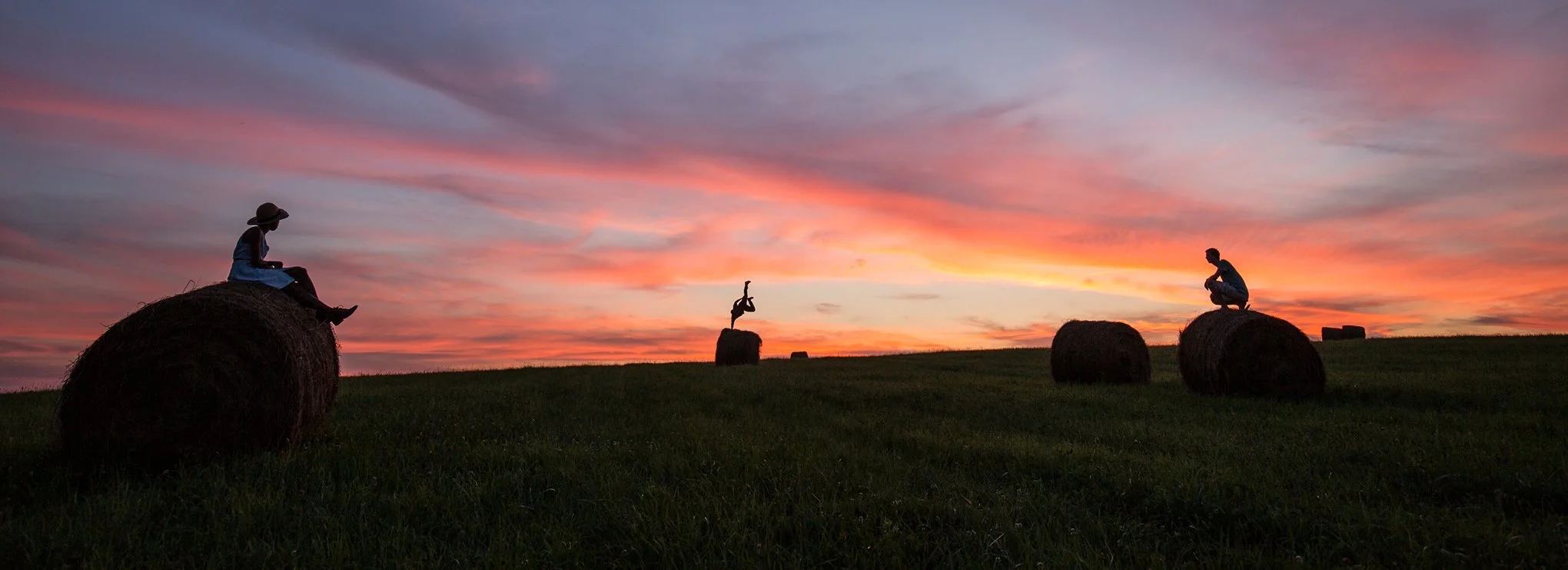EXCERPT
the culture of the few
What could God do with a few people committed to live a focused life in the midst of the crowd? Throughout the course of history, a simple truth rings out to me: The direction of the masses is typically shaped by the relative few. Influence in the hands of a handful can change the course of history, for better or for worse.
I remember hearing the story of how thirteen people gathered around a young leader near the turn of the twentieth century to discuss a new idea. They believed that within fifty years their “new idea” would rule the world, and in fact, over twenty countries came to subscribe to their beliefs at the height of its popularity, with several major world players still professing it today.
The idea was communism. Thirteen people committed themselves to an ideology that revolutionized the world.
In the introduction of Malcolm Gladwell’s book The Tipping Point, a story is told of how Hushpuppy shoes were on the verge of extinction until a handful of trend setting students in an artsy neighborhood of New York City decided that the shoes were “cool.” Within three years of these students’ influential decision to start wearing Hushpuppies, the brand was stronger than ever before and won the prize for best accessory at the Council of Fashion Designers awards dinner at the Lincoln Center.
Scripture records the story of how four young refugees rose to power in one of history’s greatest empires. Daniel and his three friends were literally pulled from amongst the exiled Jews and forced into positions as princes in Nebuchadnezzar’s reign of terror, but they then used that influence to make decisions that spared thousands of lives.
The Culture of the Few is unashamedly written for those who want to change the world. In many ways this is a book about cultural transformation, and how cultural transformation usually begins away from the public eye and the flashbulbs of press conferences. Real transformation is most often catalyzed by a few “agents of change” that live intentionally and infect others with their lives.
This catalysis happens most noticeably in pop culture with fashion, art and music. Have you ever thought about the process of “alternative” music becoming a part of mainstream culture? What was once considered to be “on the fringe” somehow works it’s way into acceptance as the fringe infects the crowd. It starts when someone decides they are not satisfied with the status quo and recruits a few friends to see things differently.
These types of decisions don’t just shape musical trends or define what is “fashion forward” for the season; they help determine what social causes will gain traction and what products will succeed during the Christmas rush. Politics, family, and faith are all drastically impacted by those who consider themselves to be outsiders, as different from the crowd.
Of course, many “outsiders” simply feel discontent and disenfranchised. Negativity and injustice can become both the fuel and the focus of their attention. For some, the discontentment will grow to a place where they are determined to disrupt the norm, forcing change on the masses against their will. While able to make an immediate impact, this kind of lifestyle rarely leads to positive, long-term change.
But there is another type of “outsider” that operates from a different ideology. They are fueled by their quest for justice instead of dwelling on injustice, focusing on solutions instead of problems. Regardless of whether their cause is hugging trees, fighting bad music, or loving lonely hearts, the actions of these “agents of change” are driven by an intentional desire to see things improve for all people.
While there are plenty of outsiders who are content to complain and accuse, these would-be world changers are not satisfied debating ideology. They will not “leave well enough alone.” They scorn the good and strain for the best.
The concept of the Culture of the Few relies heavily upon the truth that “agents of change” have great influence on their surroundings. We can easily forget the impact that the “micro” has on the “macro” if we make the mistake of believing that the masses drive culture. The “macro” parts of our culture are, after all, made up of multiple “micros” converging into something larger.
When we forget this important truth, we begin to shift our thinking into neutral, forgetting that we can actually effect change in our own lives and in the lives of people around us. This can be true for governments, businesses, churches and any other social system comprised of people. While the opinions of the masses are not unimportant, they are not typically formed by each member of society coming to the same conclusion simultaneously and independent of one another. The opposite is actually true.
The crowd is filled with followers. Throughout history, leaders have used this truth to advance humanity towards its greater self or reduce it to its basest and most sheep-like qualities. Some have used it to manipulate people into fighting unjust wars. Others have used it to deliver oppressed people from bondage. Despite the positives and negatives of our tendency as a species to “follow the herd,” one thing is certain—it does not cause cultural transformation.
No, transformation occurs when someone makes a bold move that sets them apart from the crowd, a move that says, “Follow or oppose me, but I’m going this way. I’m wearing Hushpuppies. I won’t bow down.”
It is easy to think that in order to be an “agent of change” you must become some revolutionary political leader, but that isn’t the case; world changers are all around us. They are young and old, male and female, black and white. Some have grown their influence to a place of fame and power; others infect the crowd from within. For each of them, it started with a choice. World changers decide to be different, even as they live in the midst of the crowd.

